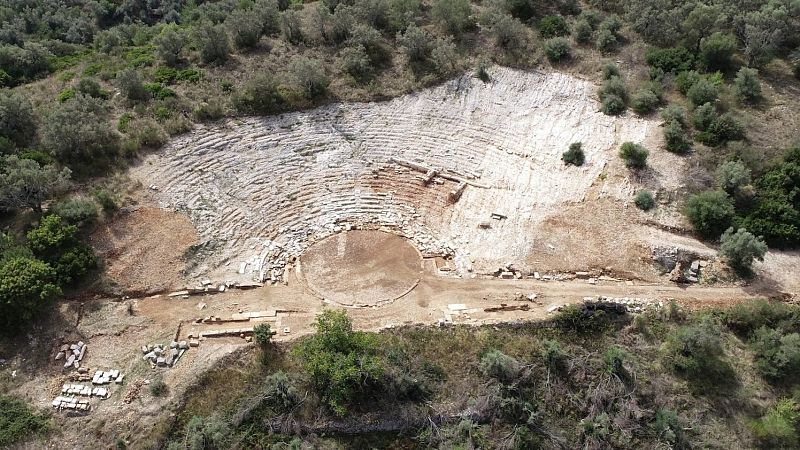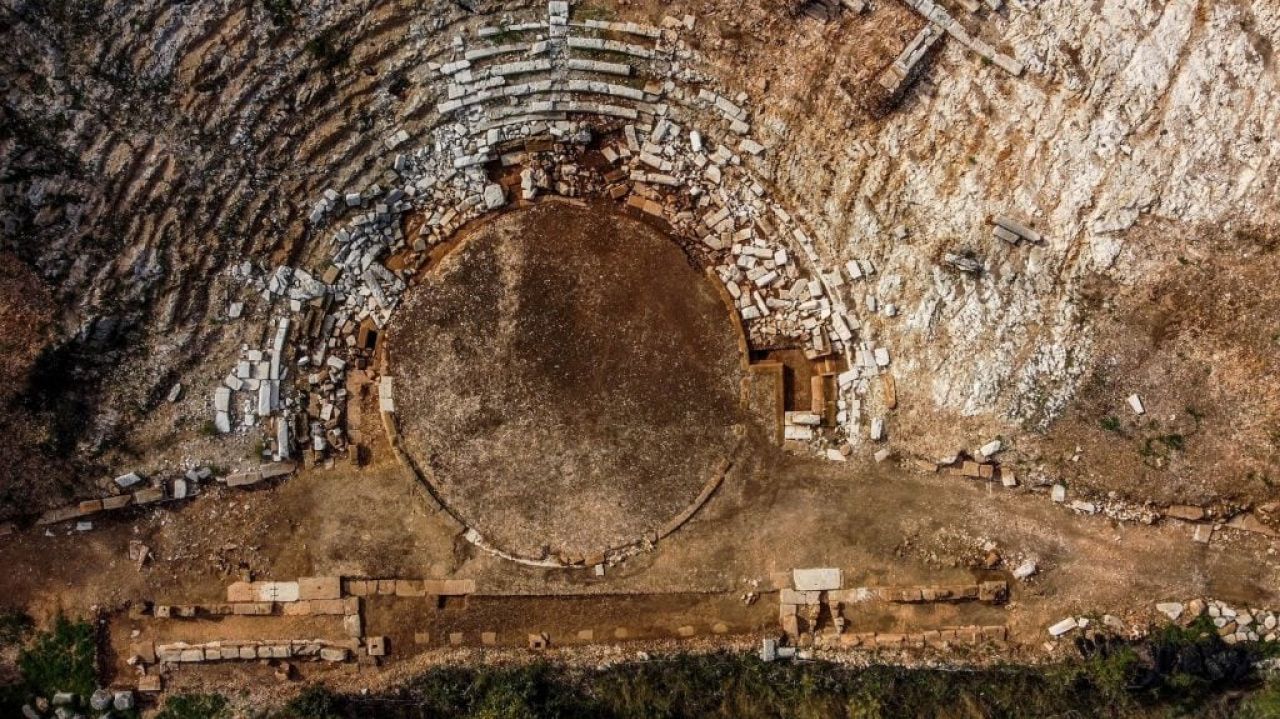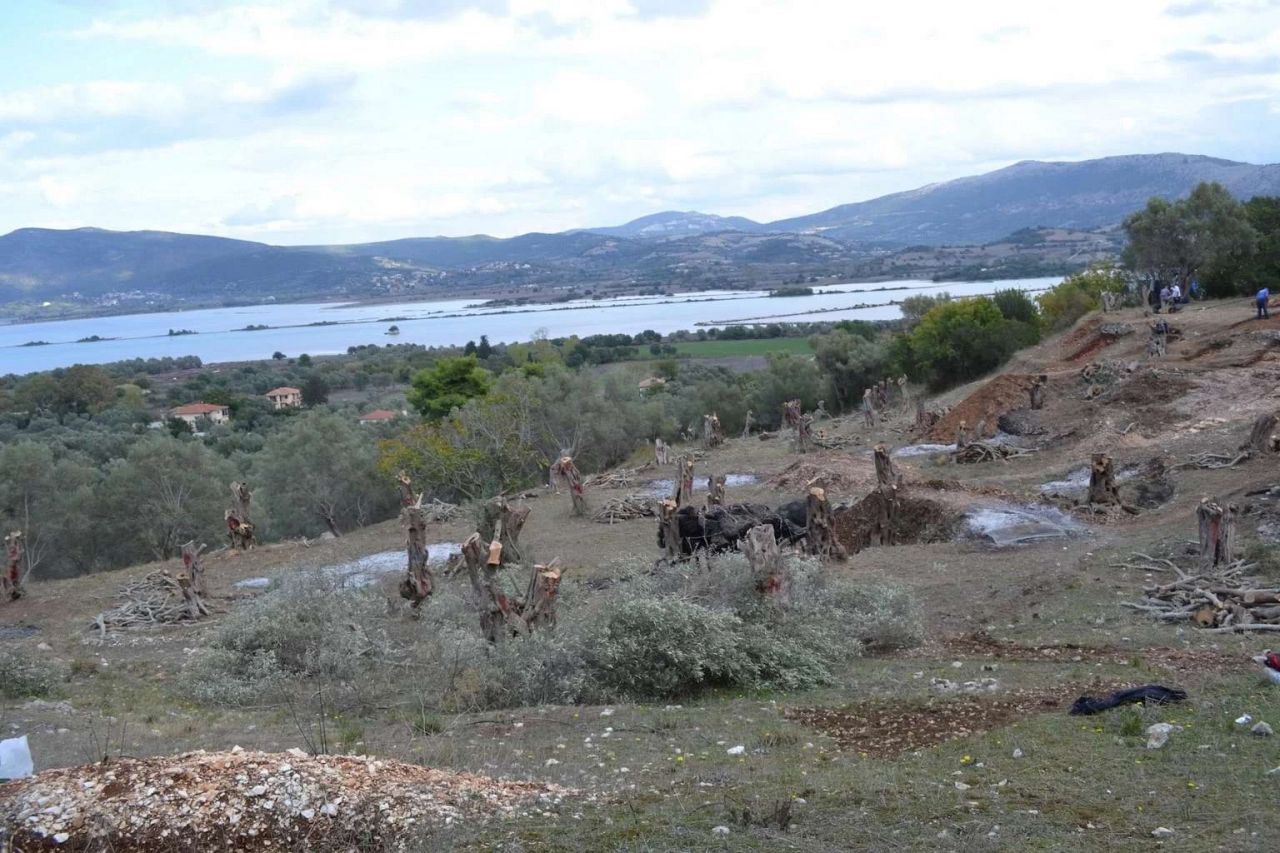
After a century-long wait, an excavation has finally revealed the only ancient theatre on Greece's Ionian Islands. Ancient Lefkada’s theatre was first discovered in 1901, but it took until now for the theatre to be unearthed for all to see.
Seafaring Corinthians founded Lefkada around the 7th century BC and it became a wealthy port. The remains of the theatre, which overlook the coast, are situated some 3km south from the modern city of Lefkada.
It’s believed the theatre was built around the 4th century BC and it is the only theatre of its kind on the Ionian Islands. Historians first became aware of the building in 1901 when German archaeologists Edmund Krüger and Wilhelm Dörpfeld led excavations of the island and later published their findings in Dörpfeld’s 1927 book "Alt Ithaka".
However, after the Germans found the theatre, they reburied it. In the intervening century, olive trees and makeshift warehouses took over the site and the theatre was believed lost.
It was only rediscovered by chance in 1997 when it was identified by the monument’s particular geographical characteristics in a survey by the 12th Ephorate of Prehistoric and Classical Antiquities.

Since 2015, a new excavation project has helped to expose the once-lost theatre. Through removing the olive trees, they have revealed the remains of a 13-step theatre divided into 12 stands. There were 21 rows of seats, then a “diazoma” aisle separating the next three rows for audiences to enjoy the ancient theatre. In total, it could welcome 3,500 spectators.
It’s believed the theatre was never fully completed and it had been planned to accommodate between 10,000 and 11,000 spectators.
The press release described the discovery as “undoubtedly the most important and imposing monument that has come to light in ancient Lefkada.”

Also discovered were the parts of three stone thrones, decorated with lion paws, dolphins, birds, and a siren; all of which “were intended for prominent persons, priests or officials of the city and later of the Acarnanian Commons”.
While the theatre would have been used at the height of Ancient Lefkada’s economic and cultural popularity, it would later fall into disuse during the Roman times. This was in most part as the rest of the city declined with it, following Octavian Augustus founding Nicopolis in 31 BC and many Lefkadians being forced to resettle there.







